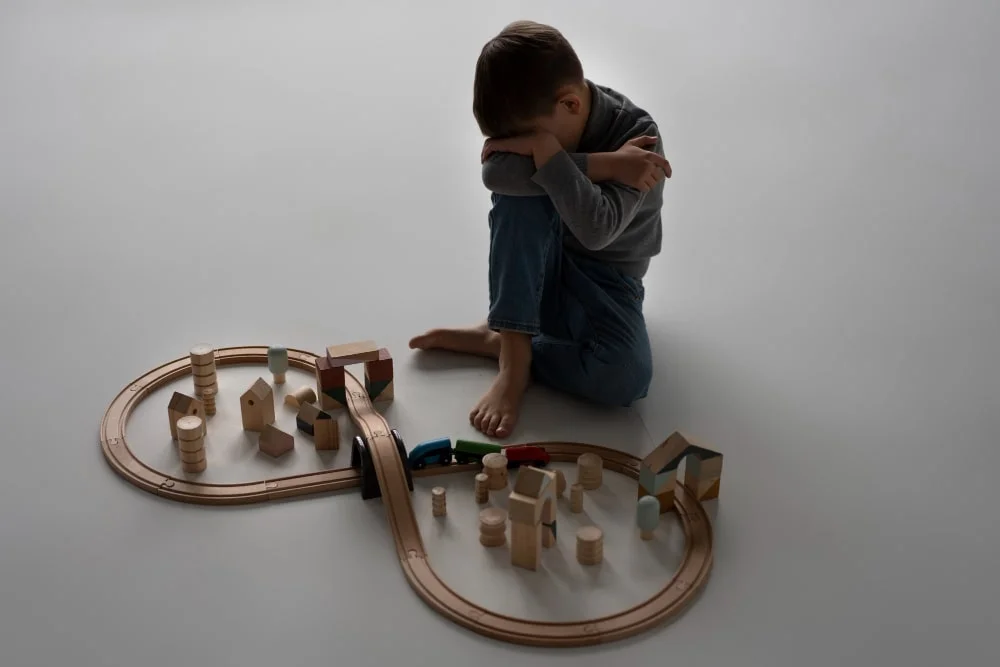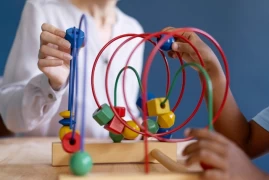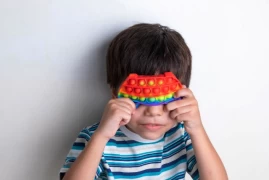
Developmental Delay in Children
- Developmental Delay in Children
- What Is Developmental Delay?
- What Are the Signs?
- Causes of Developmental Delay
- The Importance of Early Diagnosis
- The Right Intervention at the Right Time
- What Should Be Done?
- It must not be forgotten that:
Throughout my professional experience, one of the issues that parents worry about most is their children falling behind their peers in development. Although every child’s developmental process is unique, in some cases these differences may be a sign of developmental delay. In this article, I would like to shed light on the subject of developmental delay in children, both scientifically and through observations I have gained from the field.
What Is Developmental Delay?
Developmental delay refers to a significant delay or deficiency in a child’s expected cognitive, language, motor, social-emotional, or self-care skills for their age. This condition may appear in a single developmental area or across multiple domains. Since each developmental area is interconnected, a delay in one can affect the others.
What Are the Signs?
Parents and educators usually notice developmental delays when they observe differences between the child and their peers. For example:
- Language development delay: A two-year-old child still unable to form two-word sentences.
- Motor development delay: An 18-month-old child still unable to walk, or walking very unsteadily.
- Social-emotional development delay: Avoiding interaction with peers, lack of eye contact.
- Cognitive development delay: Inability to follow simple instructions, having a very short attention span.
These examples are general and may vary for each child. Therefore, a detailed developmental assessment is essential.
Causes of Developmental Delay
There is no single cause of developmental delay. Genetic factors, prenatal and postnatal complications, premature birth, environmental deprivation, chronic illnesses, or intellectual disabilities can all play a role. However, in some children, no specific cause can be identified.

The Importance of Early Diagnosis
As a special education teacher, the point I emphasize most is the importance of early diagnosis and intervention. The earlier developmental differences are identified by specialists, the more effective the intervention process will be. Early childhood is the period when the brain develops most rapidly, and supportive interventions during this time can make a significant long-term difference.
The Right Intervention at the Right Time
The right intervention at the right time is extremely important. If intervention is delayed, the gap between the child and their peers will widen. Even worse, as time goes on, closing this gap will require more effort and may never reach the desired level.
What Should Be Done?
My recommendation to families is to closely monitor their child’s developmental process and seek professional support without delay if they notice anything concerning. Developmental assessments are conducted with play-based tools and are non-traumatic, enjoyable experiences for the child. When necessary, a multidisciplinary approach may be planned, including special education, speech therapy, occupational therapy, and psychological support.
It must not be forgotten that:
Every child is valuable and develops at their own pace. However, some children may need a little more support on their developmental journey. As specialists, our goal is to provide the most appropriate support to help these children reach their full potential. Early recognition, proper guidance, and patient support can truly make a difference in the life of a child with developmental delay.

Ezgi KUTLU
Special Education Teacher
DIR Floortime 201 Clinician



